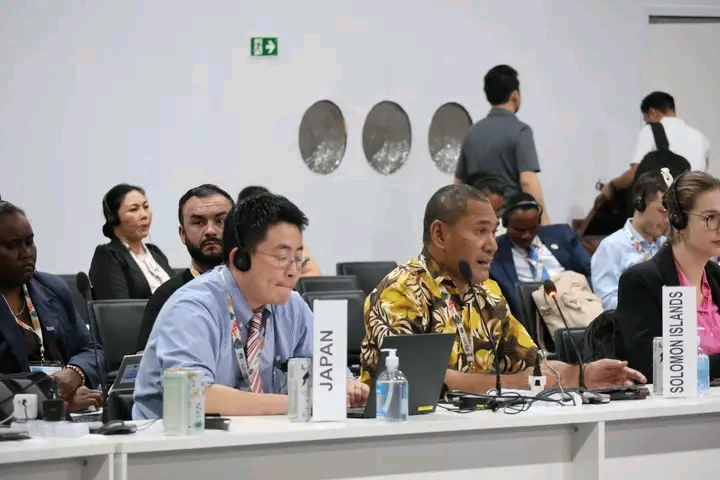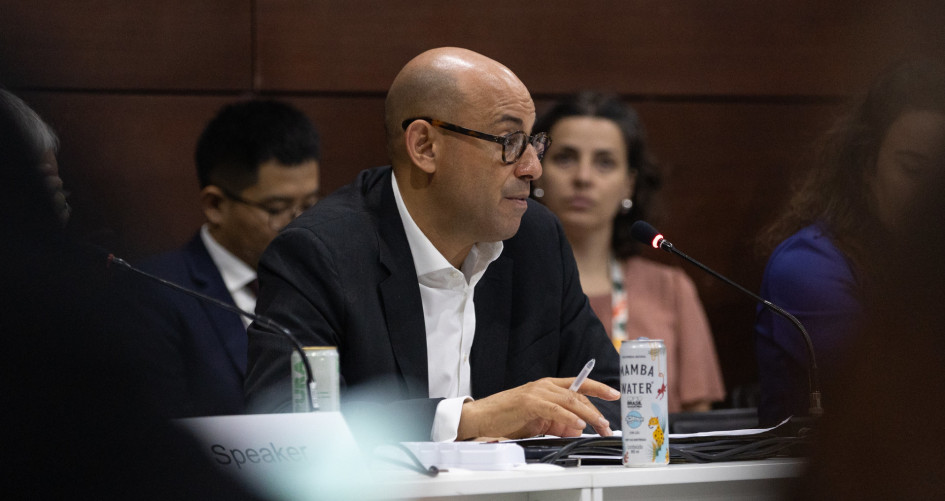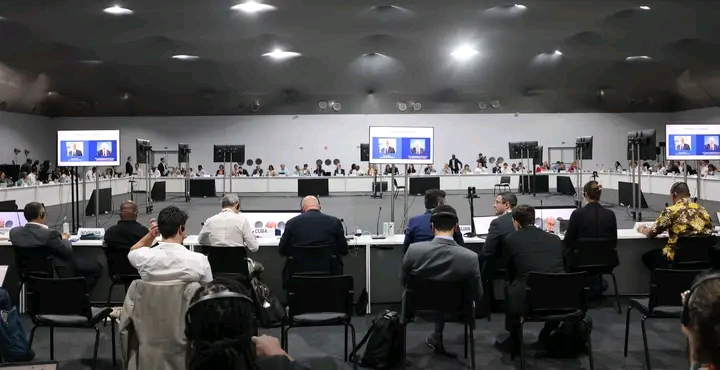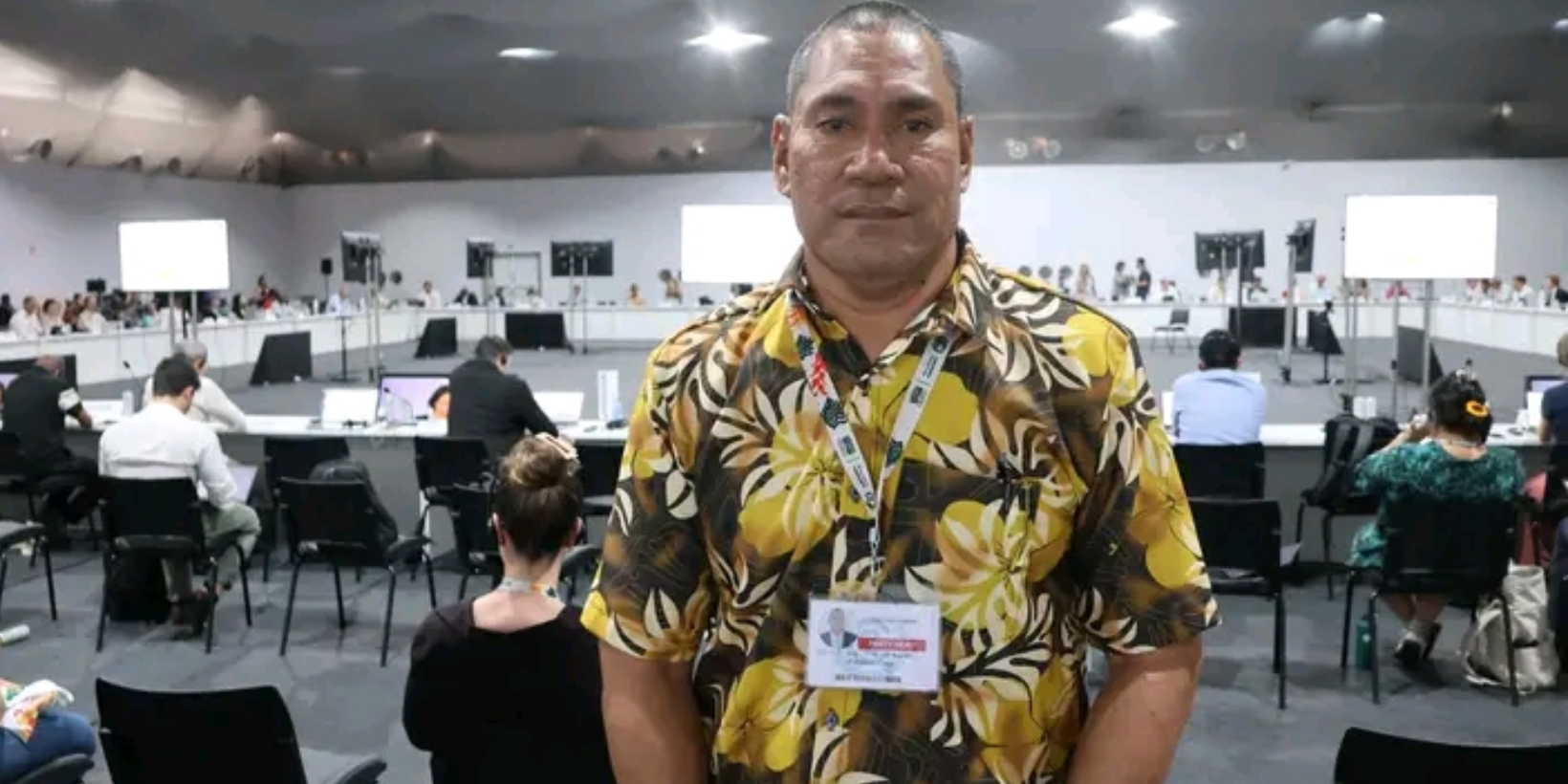Solomon Islands has reiterated that climate finance is a legal duty—not an act of goodwill—during the 3rd High-Level Ministerial Dialogue on Climate Finance at COP30 in Belém, Brazil.
Delivering remarks on behalf of the Pacific Islands Forum (PIF) Chair, Minister of Environment, Climate Change, Disaster Management and Meteorology on Saturday in Belem Brazil, Hon. Polycarp Paea, said Small Island Developing States (SIDS) remain on the frontline of a climate crisis they did not cause.
Despite contributing less than 0.03 percent of global emissions, SIDS face worsening sea-level rise, stronger storms, and severe risks to culture, sovereignty, and livelihoods.
Paea emphasised that this reality strengthens the call for climate finance based on fairness, equity, and international responsibility.
He highlighted the recent International Court of Justice (ICJ) Advisory Opinion, which reaffirmed that developed countries have binding legal obligations to provide adequate financing, technology transfer, and capacity-building support to vulnerable countries—especially SIDS and Least Developed Countries (LDCs).
“This obligation is not discretionary,” he said.
“It is grounded in the core principles of the UNFCCC and Paris Agreement,” he added.

Paea welcomed the Baku to Belém Roadmap, which outlines steps to scale climate finance from billions to trillions by 2035 under the new collective quantified goal.
He stressed that finance must be predictable, transparent, just, and centred on public and grant-based resources, particularly for adaptation and loss and damage.
“For Pacific SIDS, adaptation cannot be built on debt,” he said, noting that many island economies are already burdened by high debt-to-GDP ratios.
“Loan-based finance only deepens our vulnerability.”
As PIF Chair, Solomon Islands also endorsed calls for urgent reforms to multilateral development banks, including improved concessionality and fairer access to climate finance for SIDS and LDCs.
Paea warned that long delays—often five years or more—in project approval processes have severe consequences for Pacific communities.
“For us, delays mean lives lost, coastlines disappearing, and cultures displaced,” he said.
“Finance must be delivered at the speed and scale of the crisis.”
He concluded with a reminder of the region’s unified stance: climate finance is both a moral and legal obligation, and future global commitments will be judged by resources delivered, not promises made.
“For the Pacific, climate finance is our right to survive, to thrive, and to secure a future for generations now and yet to come.” he added.

UN Climate Change Executive Secretary Simon Stiell also called on world leaders to deliver climate finance that is “fast, fair and predictable,” warning that global climate action risks stalling without stronger trust and adequate resources.
Addressing ministers at the High-Level Ministerial Dialogue on Climate Finance on Saturday at COP30 in Belém, Stiell described climate finance as the “lifeblood of climate action,” saying it is essential for turning national commitments into concrete results on the ground.
He stressed that the dialogue is not a formality, but a critical moment for developing countries — particularly small island states — to gain clarity and confidence in the support available to implement their mitigation and adaptation plans.
“Without trust, implementation slows, ambition falters, and progress becomes much harder,” he told ministers.
While acknowledging that public and private climate finance has expanded since the Paris Agreement, enabling growth in clean energy, resilience efforts and just transition initiatives, Stiell cautioned that current financing remains inadequate, unpredictable and unevenly distributed.
“Climate finance is not charity – it’s smart economics,” Stiell said, emphasising that climate action backed by sustainable finance is “the growth story of the 21st century.”
By ULUTAH GINA
Solomon Star, Gizo
Note: This story was produced as part of the 2025 Virtual Climate Change Media Partnership, a journalism fellowship organized by Internews’ Earth Journalism Network and the Stanley Center for Peace and Security’.










